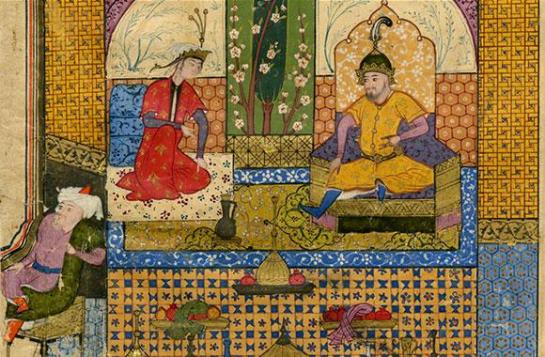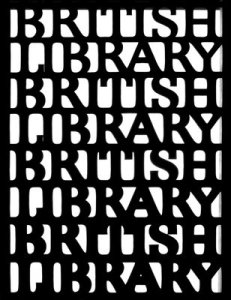I’m very grateful to Maxim Romanov for putting together this very helpful program complete with timestamps for each presentation of our 2013 conference. Click the links below to watch each day of presentations in its entirety, and navigate to the talk or discussion section you’re interested in via the slider.
Thursday, October 24, 2013 – Day One
- Introduction
- | 0:00:00 | Beshara Doumani (Brown U): Opening Remarks
- | 0:00:45 | Elias Muhanna (Brown U): Opening remarks
- Digital Ethnography | chair: Beshara Doumani (Brown)
- | 0:13:30 | Beshara Doumani (Brown U): Introduction
- | 0:14:25 | Peter McMurray (Harvard), “Berlin Islam as Acoustic Ecology: An Ethnography in Sound”
- | 0:41:00 | Nadia Yaqub (UNC), “Working with Indigenous Digital Humanities Projects: The Case of the Mukhayyam al-Sumud al-Usturi Tal al-Za‘tar Facebook Group”
- | 1:09:20 | Discussion
- Manuscript Visualization and Digitization | chair: Elias Muhanna (Brown)
- | 1:33:05 | Elias Muhanna (Brown): Introduction
- | 1:34:50 | Alex Brey (Bryn Mawr), “Quantifying the Qur’an”
- | 1:54:50 | David Hollenberg (Univ. of Oregon), “Preserving Islamic Manuscripts Under Erasure: The Yemeni Manuscript Digitization Initiative”
- | 2:18:15 | Discussion
- Text Mining | chair: Beatrice Gruendler (Yale)
- | 2:45:00 | Beatrice Gruendler (Yale): Introduction
- | 2:47:40 | Maxim Romanov (Tufts), “[Toward] Abstract Models for Islamic History”
- | 3:14:50 | Guy Burak (NYU library), “Comparing Canons: Examining Two 17th-century Fatawa Collections from the Ottoman Lands”
- | 3:35:20 | Kirill Dmitriev (St. Andrews), “Arab Cultural Semantics in Transition”
- | 3:51:50 | Discussion
- Databases | chair: Elli Mylonas (Brown)
- | 4:37:30 | Elli Mylonas (Brown): Introduction
- | 4:37:55 | Sebastian Günther (Göttingen), “A Database & Handbook of Classical Islamic Pedagogy”
- | 5:09:45 | Will Hanley (FSU), “Prosop: A Social Networking Tool for the Past”
- | 5:31:00 | Discussion
- Mapping | chair: Sheila Bonde (Brown)
- | 6:03:50 | Sheila Bonde (Brown): Introduction
- | 6:05:00 | Till Grallert (Freie Univ. Berlin), “Mapping the Urban Landscape through News Reports: Damascus and its Hinterlands in Late Ottoman Times”
- | 6:26:50 | Meredith Quinn (Harvard), “The Geography of Readership on Early Modern Istanbul”
- | -:–:– | Discussion (not available)
Friday, October 25, 2013 – Day Two
- Digitization and E-Publication | chair: Ian Straughn (Brown)
- | 0:00:00 | Ian Straughn (Brown): Introduction
- | 0:02:00 | Dagmar Riedel (Columbia Univ.), “Manuscripts and Printed Books in Arabic Script in the Age of the E-Book: The Challenges of Digitization”
- | 0:31:50 | Chip Rossetti (Managing Editor, LAL), “Al-Kindi on the Kindle: The Library of Arabic Literature and the Challenges of Publishing Bilingual Arabic-English Books”
- | 0:54:50 | Discussion
- Disciplinary and Theoretical Considerations | chair: Elias Muhanna (Brown)
- | 1:21:10 | Elias Muhanna (Brown): Introduction
- | 1:21:55 | Afsaneh Najmabadi (Harvard), “Making (Up) an Archive: What Could Writing History Look Like in a Digital Age?”
- | 1:55:25 | Travis Zadeh (Haverford), “Uncertainty and the Archive: Reflections on Medieval Arabic and Persian Book Culture in the Digital Age”
- | 2:22:10 | Discussion
- Keynote address
- | 2:43:55 | Elias Muhanna (Brown): Introduction
- | 2:47:00 | Dr. Dwight Reynolds (UCSB): “From Basmati Rice to the Bani Hilal: Digital Archives and Public Humanities”
- | 3:30:00 | Discussion

